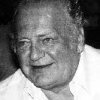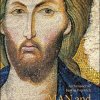28 March 2015
Martyrs Agapius & co. at Caesarea in Palestine
Dear Your Grace,
Vladiko svjeti.
I would like to thank you, His Grace Bishop Atanasije, and all responsible for hosting the Sts. Sebastian and Mardarije Institute. I found the week to be replete with spiritual and theological instruction and, above all, an opportunity to observe “living history.”
Bishop Atanasije’s classes were celebrations of our freedom in Christ, which is perhaps the most cherished pearl I took from Phoenix. It was humbling and inspiring to hear His Grace’s response to our brother priest asking about the placing of the particles of commemoration into the Chalice. His answer eschewed law and enforcement, presenting instead the theology that he received from his fathers and transmitting it in love and freedom.
.His stories of St. Justin and Patriarch Pavle offered anecdotes of holiness in our time. To be present at St. Anthony’s when His Grace was visiting with Geronda Ephraim – a fly on the wall while observing sitting on the couch a few feet from each other a spiritual son of Elder Joseph the Hesychast and a spiritual son of St. Justin – was a blessing to behold and me feel part of a line that continued.
The structure of the symposium was good for Bishop Atanasije, but not every speaker will be able to fill eight hours a day. However, I would hope that however future symposium’s are structured, speakers are allotted more than a mere two hours to present. It is important that through roundtables, free time, and other forums, participants have the opportunity to not only learn intellectually, but absorb the phronema and attitude of men committed to living holy lives. Talented speakers are a dime a dozen. But men of holiness, gerondas of our age like Geronda Vaseilios, Geronda Ephraim, or Bishop Atanasije are what separate our Faith from other confessions.
During the course of his instruction, Bishop Atanasije noted that “he who understands Liturgy understands life.” My prayer is that God will continue to lead us all to greater understanding, through the prayers of our holy fathers.
Reverencing Your right hand and
with love in Christ,
Priest Daniel Mackay
"Our souls were filled by the blessed days we spent in Phoenix at the Sts. Sebastian and Mardarije Institute. We are deeply grateful that His Grace Bishop Atanasije poured himself out for the spiritual edification and education of us here in America. He labored tirelessly for us. We are especially grateful for this, considering the fact his advancing age and health problems make traveling more difficult for him."
- Iguman Damascene and Monks from St Herman of Alaska Brotherhood
Dear Organizers of the Institute,
I did not spend much time in college when I was younger and as a result have not developed the ability to sit for hour after hour of lecture and absorb all of the teaching, plus I tend to get drowsy sitting too long, so I sit for a time then stand and pace off and on to keep myself alert. I took nine pages of notes from the lectures which I have reviewed several times. I heard things that I have not read in books, all very valuable. The most profound statement of all was: “what people can correct God won’t”.
I had several striking impressions that happened apart from the educational intent of the Institute that I will attempt to describe: To begin with this event was of a longer and more relaxed nature than those that I have taken part in in the past with so many Serbian Orthodox priests. From the reading that I have done on the history, both early and recent, of Serbia, which has contained so much suffering and loss, the atmosphere created by the people who have experienced that loss and suffering in the past 25 years was one of lightness and faith; there was no bitterness and blame. I see this in contrast because I have experienced the opposite effect on a different group of people: older Japanese Americans who suffered in the internment camps of WWII who have an atmosphere of unresolved suffering and anger that is eating at them from the inside out and is noticeably unpleasant to be around. This is a powerful testimony to the power of the faith of the Serbs and the Serbian Orthodox Church. What I have read for years about the transforming power of Orthodox faith, praxis and sacrament I saw lived out in a small but representative group of a whole people. Oddly I also felt a depth of faith that I have not sensed in the past, and I’ve been to Mt. Athos, Hilandar included: I can only guess that being parish priests they are much closer to my way of life than monastics are, thus making a stronger connection.
We had the performances of the young people on our last night there which was a celebration of ethnicity, however the ethnic expression is one of Orthodoxy through the culture, which I find to be consistent.
One of the attendees was a red haired woman from Chicago whom I introduced myself to on Friday when we were at St. Anthony’s, who’s name I do not recall. I asked her what brought her to the Institute and after some polite but persistent questioning (she was very hesitant to talk, I’m glad she did) her answers revealed Metropolitan Athanasi from a perspective that tied the whole experience together for me. She said that he is a living saint, that his teaching and writing in Serbia has had a powerful effect on the whole country, that he had transformed parishes and the faith of people who had fallen away from the Church on a significant scale. And also that during the wars in Bosnia and Kosovo that he had gone to the areas of intense fighting.... From hearing him, being around him and hearing her description of him I got the impression of a bishop similar to what I have read about what St. John Maximovich was like.
In summary, during the week that I spent at the Theological Institute I learned and absorbed many things on different levels. Study, parish life and pilgrimage have built the foundation for the experience that I had at the Institute and it complimented and built further on that foundation. I look forward to attending the Institute next year, God willing.
In Christ,
Dn. Fr. Stephen Dyer




